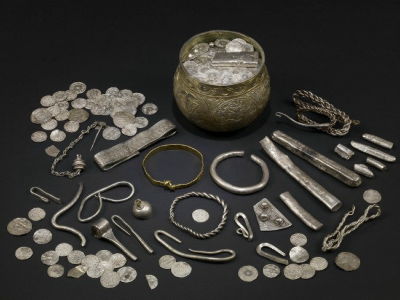Ancient Greece was an amazing booming democratic politics
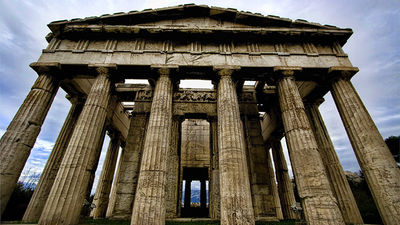
ByVicky Tsavdaridou
Greece is approaching the crisis of fiscal collapseReferendum for approval or rejection of fiscal reconstruction planAnd stands on the brink of whether or not to leave the euro area. Greece is facing an economic crisis such that the Greek government limits ATM withdrawal limit to 60 euro (about 8190 yen), but in ancient Greece far past, it is thought among classical scholars Stanford University research revealed that the state of the economy was better and had an astounding economic growth rate supported by democratic politics.
Scholar at Stanford debunks long-held beliefs about economic growth in ancient Greece
http://news.stanford.edu/news/2015/june/greek-economy-growth-061115.html
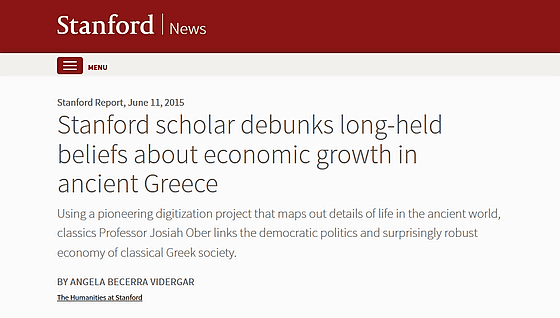
Originally the theory that economic growth did not exist in ancient Greece was common sense among classical scholars, but Professor of Stanford University's classical studiesJosiah OberMr. discovered evidence that the ancient Greece about 1000 to 300 BC had unparalleled economic growth rate.
Mr. Ober combines a research team with a professor of political science and students at Stanford University to digitize massive records and literary materials on ancient Greece and provide tools to visualize the then Greek economic growth ratePOLISI made it. POLIS contains data such as population, population distribution, the position of city states with a population of 1000 or more, the place where celebrities lived at the time, etc. It is possible to display the state of Greece at the time on the map I can do it.
POLIS
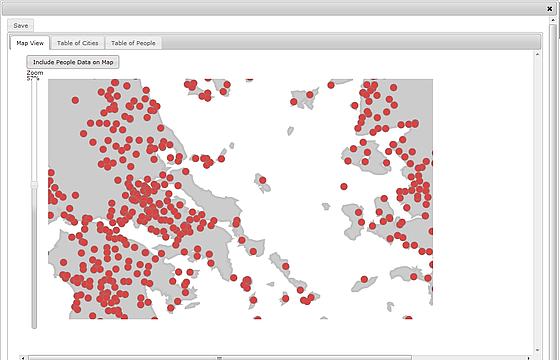
While investigating these data, Mr. Ober said he found enough evidence to overturn the theory that ancient Greece was a poor country. According to Mr. Ober, Greece at that time built a city group with a unique decentralized structure that followed many independent countries, and it seems that even a few strong countries could not be combined. The fact that the nation dispersed leads to relative prosperity of democracy, and it became the environment where technological innovation and cultural development are likely to occur.
Also, as archaeological data such as the plan of the house and the discovery information of the reserve Greek currency so far were added to POLIS, when the Greeks of those days fell into a crisis situation, the currency was buried under the floor of the house It turned out that it tended to protect savings. When the crisis situation was serious, the buried currency never saw the eyes of the day.
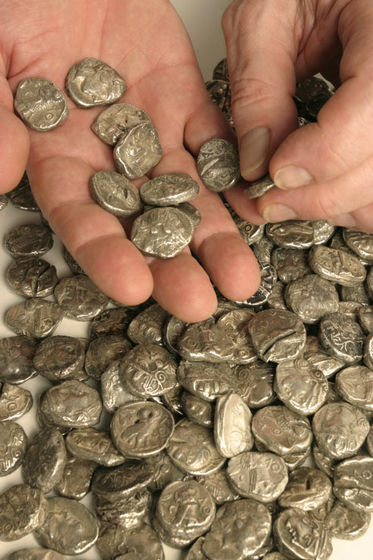
This data shows that casting money was circulating much earlier than was thought in ancient Greece and considering the development of the economy from the circulation of the currency, the total population at that time was 10 times the number that was considered ~ 15 times. In addition, since per capita consumption rate in the same period is expected to be doubled, it turned out that ancient Greece had a better economy and had a higher economic growth rate than it had been thought.
And if Mr. Obe said "If it is remarkably democratic" that ancient Greece has ample economic power, people will invest for themselves, such as land improvement techniques and education. It alone is not a condition of general high economic development, Obe said "In an ancient Greek democracy where the government had established fair rules, it is worth investing in citizens" I guessed it. " Normally, it is thought that a centralized group leads to the growth and development of the city, but in ancient Greece where the nation was scattered, it became a state like a technology development and improvement competition, so it is a phenomenal It is thought that it led to economic growth.
Related Posts:
in Note, Posted by darkhorse_log






